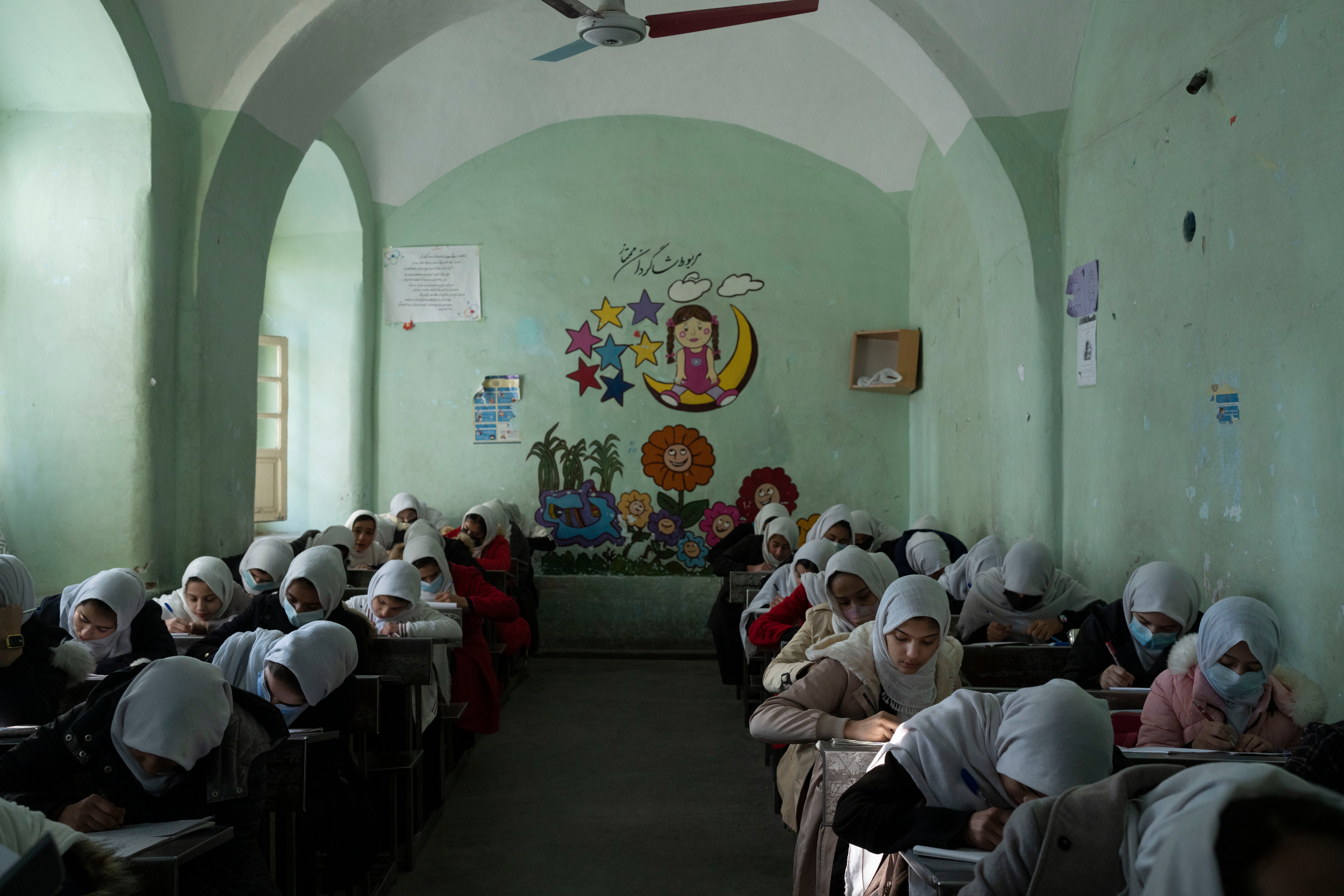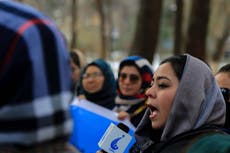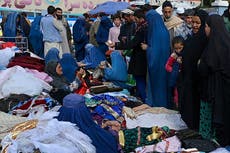8 in 10 female secondary school pupils in Afghanistan ‘missing out’ on education’
‘All I wanted was to go to school, to study, to become someone in the future and make my family and the people from this area proud,’ says Parvana

Around eight in ten female secondary school pupils in Afghanistan are missing out on their education, according to new research.
A study, by Save the Children and UNICEF, found nearly 80 per cent of girls - which amounts to around 850,000 girls – have had their right to an education blocked in provinces where secondary schools have stayed closed for girls.
The report, which looked into how many girl students have gone back to school in the past month in Afghanistan, comes a month after the Taliban prolonged their ban on girls of secondary school age going to school. The authorities urged girls to stay home on 23 March.
Parvana*, a 14-year-old girl from Kabul province, has been unable to go to school as she is scared of being subjected to violence.
“When my brother was going to school and I couldn’t previously, I felt awful,” she said. “All I wanted was to go to school, to study, to become someone in the future and make my family and the people from this area proud.”
The teenager, who has been going to lessons run by Save the Children instead, said education is imperative for boys and girls.
“Everyone should be educated,” Parvana added. “No one is born to stay at home. We are born to work hard, study and reach our goals.”
The Taliban has launched a grave crackdown on women’s basic rights since seizing power of the Afghan capital Kabul in mid-August as the US and British forces withdrew. The hardline Islamist group, which previously ruled the country, has blocked women from the workplace and secondary education, as well as barring women from taking part in all sports, and forcing them to wear the hijab.
Olivier Franchi, of Save the Children Afghanistan, said: “Girls were absolutely shattered last month when they arrived at classes – excited for the new school year – and were told to go home.
“Since then, Save the Children has spoken with girls who say they are depressed and heartbroken at being denied their fundamental right to learn.
People were scared when the transition of power happened, as they were not allowing many girls to go to education facilities. Even if they were allowed, girls were too scared to go to class.
“Education is a lifeline for all children, especially girls. Without it, they are at increased risk of violence, abuse, and exploitation, including early marriage.”
Mr Franchi noted his charity are demanding the Taliban urgently allow Afghan girls of every age to go back to school straightaway “for the sake of girls’ survival in Afghanistan and for the future of the country”.
“There is no issue – administrative, logistical or otherwise – that can possibly justify the continuation of a policy that denies girls access to their education,” he added.
“The international community also has an essential role to play and must continue to provide funding to support and protect girls who are still in school. The education system in Afghanistan is hanging by a thread and now is not the time to back away.”
Shukuria*, a 28-year-old woman from a southern Afghan province, said she was not able to go to school as a young girl due to getting married at the age of 17 to a man who was three and a half decades older. The mother-of-five said she has found it difficult to find herself work and earn money to feed her family due to dropping out of her studies.
She explained she chose to go back to school and learn when she was 25 - saying she has been going to lessons held by Save the Children.
Shukuria said: “People were scared when the transition of power happened, as they were not allowing many girls to go to education facilities. Even if they were allowed, girls were too scared to go to class.
“These Save the Children classes can help girls left behind in their studies. Education is the most important thing in life. For my children, I hope they study and improve and get to live their dreams. For myself, I hope to become a good teacher and to serve the students of this society.”
She said her husband is no longer able to work, while her 12-year-old son has been forced to work in a car repair shop so the family can survive.
The report estimates almost eight million children of school age require help to go to school in Afghanistan, with researchers warning this is a substantial rise from 2.6 million children last year.
“Insecurity, poverty, cultural traditions, poor infrastructure, inadequate learning materials and a lack of qualified female and male teachers are continuing barriers to children accessing education,” campaigners said.
*Name changed to protect identity
Join our commenting forum
Join thought-provoking conversations, follow other Independent readers and see their replies
Comments



Bookmark popover
Removed from bookmarks